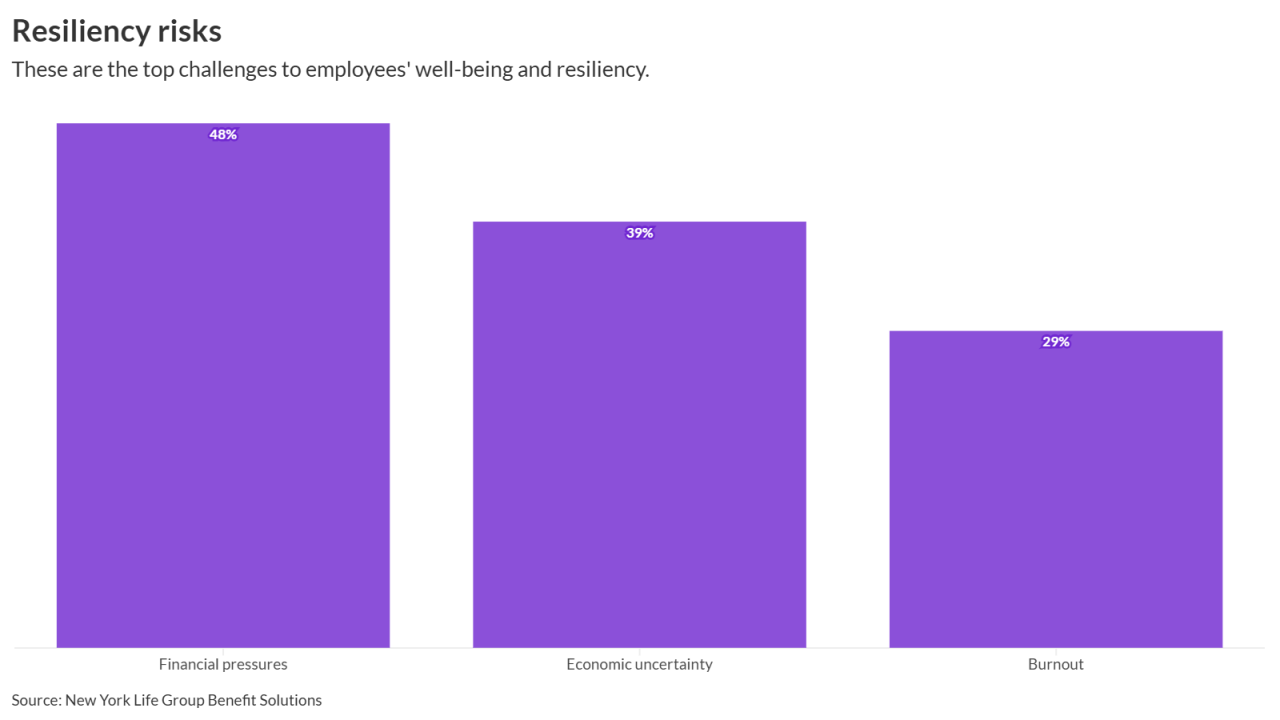What happens when patients receive a medical bill charging hundreds or even thousands more than the expected in-network costs? Before 2022, many Americans simply had to pay it.
Medical debt is the single leading cause of bankruptcies in the United States, with Americans owing nearly $200 billion, according to the U.S. Survey of Income and Program Participation. This debt in part stems from hospitals charging patients for out-of-network providers and services, despite patients going to hospitals that are in their insurance plan’s network.
“When my wife went to the hospital to have a kid, we picked a hospital that was in-network,” says John Staub, a brand development manager at Remodel Health, a health benefits management platform for employers. “Little did we know, one of the doctors doing rounds was out of network for us. Therefore, that doctor was able to charge us more.”
Read more:
As a result, Staub paid a bill worth four times more than the in-network costs. However, as of this year, the No Surprises Act stipulates that patients cannot be held liable for out-of-network costs in situations where the patient is unable to choose an in-network provider. Instead, health plans must cover the added costs and only charge the patient in-network rates. If a patient still receives a bill from their insurer that violates these stipulations, they should file a complaint with the
“The No Surprises Act puts up some thresholds and best practices for both providers and consumers alike,” says Staub. “Everyone should be stepping into healthcare in a way that expectations are set appropriately and protections are made in case those expectations are not met.”
“Surprise bills” typically arise in emergency care or in situations where an ancillary provider happens to be out-of-network without the patient’s knowledge, such as an anesthesiologist, or in Staub’s case, a doctor doing rounds. According to the Department of Health and Human Services, one in five patients with private insurance who go to the emergency room, have elective surgery or give birth receive a surprise bill. Staub notes that these bills can be up to 10 times more expensive.
For those who are uninsured or self-paying for medical services, the No Surprises Act also offers a few protections, starting with what CMS calls “good faith estimates.” Health care providers and facilities must provide self-paying patients with a list of expected charges before the patient receives an item or a service. If they are billed $400 more than the good faith estimate, the patient can dispute the charges and a third-party arbitrator between the patient and provider will decide the payment amount.
Read more:
A similar process may occur between insurance companies and hospitals if they fail to establish an out-of-network rate for services rendered. Regardless, insurers are still required to charge their clients in-network prices.
“First thing they’ll do is go into an independent dispute resolution, where third parties will step in and negotiate what sort of pricing would be fair,” says Staub. “Here, the consumer is taken out of the middle.”
While the No Surprises Act could save Americans thousands of dollars, Staub does point to potential failings of the new law. Notably, the law does protect patients from surprise bills if they use an air ambulance, but that protection has not been extended to ambulances on the road. According to the Kaiser Family Foundation, half of emergency ambulance rides include an out-of-network charge. That trip could cost $400 to well over $1,000.
Read more:
Staub also worries that many Americans will refuse to move forward with care after seeing good faith estimates, which could cause healthcare costs to rise even further when those same people are forced to seek care for more dire health concerns. Half of U.S. adults already delay or skip health and dental care because of costs, according to the Kaiser Family Foundation.
Still, Staub views the No Surprises Act as a step in the right direction for the U.S. healthcare system, since it puts patients in the position to predict and dispute their charges. Despite healthcare being held within a costly marketplace, consumers have not had the ability to shop, negotiate and estimate prices up until recently.
“It’s important for Americans to be consumers of healthcare, not just receivers,” says Staub. “Healthcare costs are the single greatest issue in America right now, and we need to remember we have much more power in this than what we fear we don't have.”





